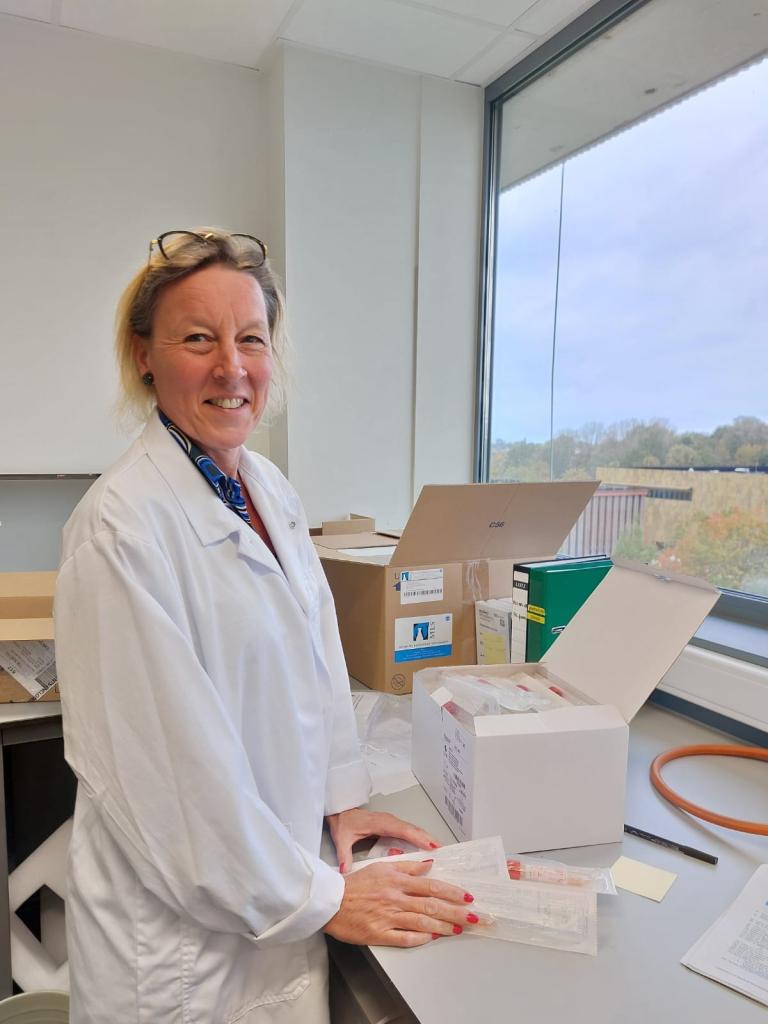The vital role of a laboratory network in clinical research
Laboratories play a multifaceted role in infectious diseases research, contributing to pathogen detection, characterisation, treatment development, and epidemiological investigations. This article delves into the significant role of our laboratory network within the ECRAID-Prime project.
The coordination of ECRAID-Prime’s laboratory network and operations is led by Herman Goossens and his team from the University of Antwerp, who also coordinate the pan-European laboratory network known as LAB-Net. Their objectives are to establish a fully operational laboratory network; develop standards that ensure the reliability and comparability research findings; and support the participating labs in detection, diagnoses and training.
Within the ECRAID-Prime project, the existence of a ‘warm-base’ laboratory network is instrumental in expediting its country and site selection process, an essential step towards activating its Phase I and Phase II studies. This significantly streamlined its laboratories site selection to facilitate the patient enrolment process, which is based on the identification of one or more specific pathogens and the evaluation of new medicinal products.

“A sustainable ‘warm-base’ laboratory network in Europe is essential for swift and efficient sample processing. This network is vital for the success of clinical trials. To build and maintain this sustainable network, standardised operational procedures, lab manuals and local staff training are crucial”. - Herman Goossens
Standardisation and harmonisation toolkit
Laboratories are responsible for processing and analysing trial samples, including the assessment of treatment outcomes, a crucial step for determining the effectiveness of new treatments and vaccines. To standardise and harmonise the entire sample management process, the team has recently developed a set of standard operating procedures (SOPs) and a detailed laboratory manual which will be distributed to local sites upon activation. The toolkit includes guidelines on sample collection, storage and shipment, with meticulous attention to factors like temperature monitoring during shipment and storage.
Katherine Loens is a post-doctoral researcher at the University of Antwerp. Working from the central laboratory in Antwerp, her responsibilities include the day-to-day management of the ECRAID-Prime trial, development of the sample collection and management manuals, site training and the biobank.
“A set of clearly defined SOPs is imperative to maintain the quality and integrity of our collected samples, which in turn, ensure the accuracy of results in applied analyses,” she says. “For instance, if our provided SOPs for sample labelling are not correctly implemented by our local sites, this can lead to samples that cannot be accurately linked to the patients from whom they were collected, resulting in the loss of valuable data. Similarly, if samples are not collected with precision – meaning we receive low-quality samples, this can lead to invalid results due to, for example, an insufficient amount of human body material collected.”
At the same time, the SOPs would be periodically updated to incorporate the most current information and protocols. Katherine explains, “It is possible that during a later stage of the trial, additional treatment options are included based on the rapid identification of the causative virus. In such cases, standardised procedures for identifying these pathogens will be provided to the participating labs.”

“Quality excellence is vital because the work of LAB-Net goes beyond the ECRAID-Prime project. The samples and data generated will not only be used for ECRAID-Prime but, with patients’ consent, added to the University of Antwerp’s biobank for use in future studies. This invaluable data will further help identify the sources of infections, predict trends and assess the impact of control measures. This is critical for public health planning and outbreak response and help to advance our understanding of infectious diseases.” - Katherine Loens
Quality control is key to maintain research integrity and ensure the comparability of research findings across studies and regions. In cases where local laboratories are involved, an External Quality Assessment (EQA) panel scheme will be developed to ensure that the participating laboratories adhere to high-performance levels, quality control standards and practices. This safeguards the reliability and reproducibility of results, particularly in the quest to identify promising candidates that can progress to clinical trials.
Genome sequencing
As the project prepares for patient recruitment in the upcoming flu season, the consortium members are working closer than ever. Following the network training meeting in February 2023, the team has developed a brochure for patients, to guide them through the process of self-swabbing their nose and throat at home. The information includes scheduled timings, storage instructions, as well as what happens next: Once all the swabs are completed, the patient’s samples will be picked up and delivered to the local laboratory for storage, and later shipped to LAB-Net’s central laboratory in Antwerp.
Upon arrival at the central laboratory, the samples will undergo an exhaustive etiologic diagnosis. Targeted and whole genome sequencing determination will be performed on specimens from selected patients, such as determination of SARS-CoV-2 Variants of Concern or viral load. The analyses of genetic, biochemical, and antigenic properties of pathogens will allow researchers to understand their behaviour, modes of transmission, and susceptibility to treatments or vaccines.
Through this multifaceted approach, ECRAID-Prime in partnership with LAB-Net and its laboratories network continue to make significant strides in the search for innovative treatments for COVID-19 and COVID-like illness and safeguarding public health.
About LAB-Net
LAB-Net maintains an extensive pan-European network of microbiology laboratories. The objective is supporting antibacterial drug development via various clinical trials. The overall objective of LAB-Net is to establish, train, and maintain a high-quality geographically representative European laboratory network. The network consists of routine diagnostic laboratories, specialised research microbiology laboratories, and a central coordinating laboratory at the University of Antwerp.